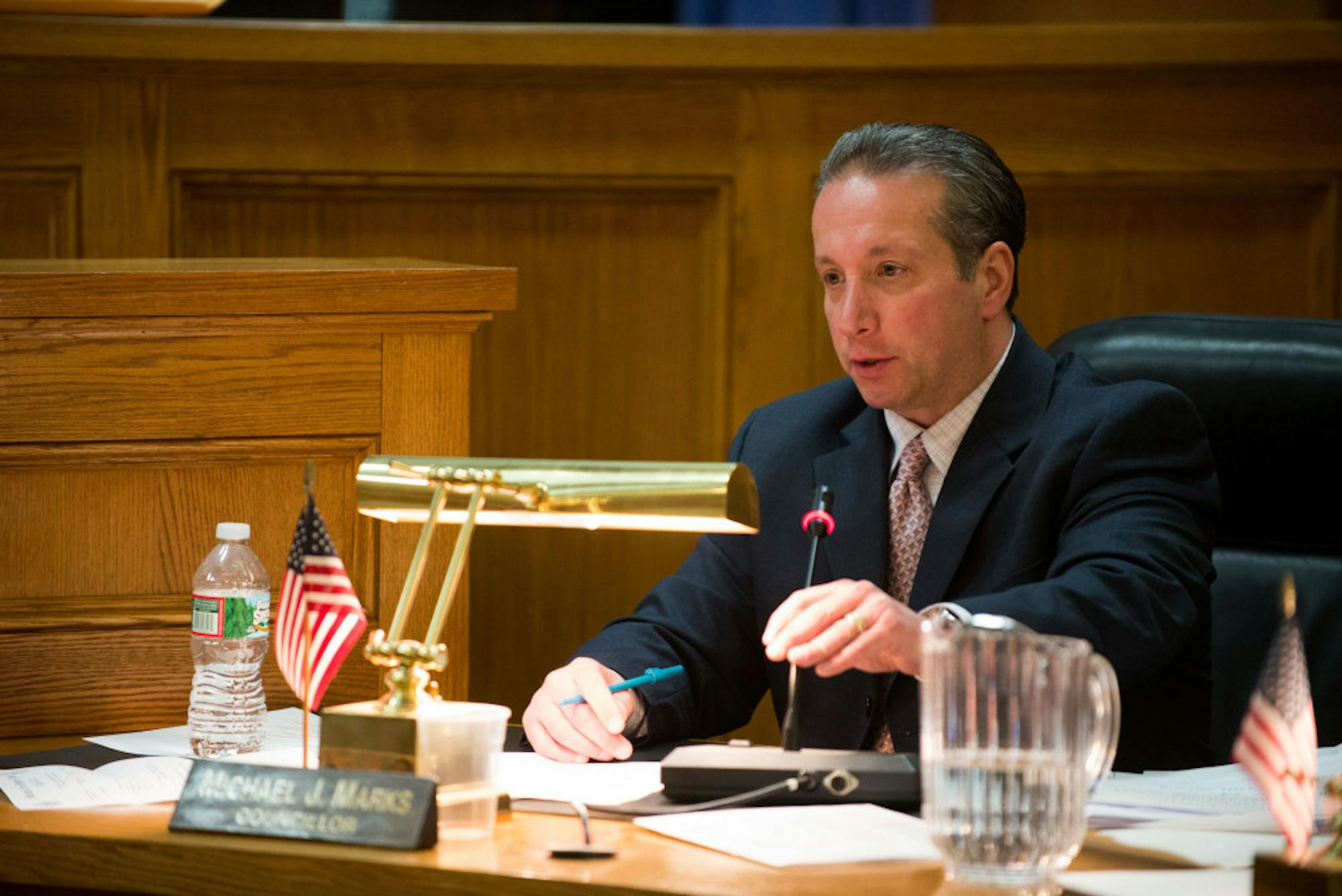The Medford City Council is considering amending its current housing ordinance to further enforce its current policy prohibiting more than three unrelated adults from living in one apartment unit. This addition comes in the form of an article entitled University and College Accountability, which would require the university to provide the city with the addresses, student statuses and graduation dates of all students living off-campus in Medford.
The addition was proposed to the City Council in a memo sent by Mayor Stephanie M. Burke on June 23, according to the Council's June 28 meeting agenda.
Medford City Councilor Michael Marks said that the question of limiting the number of persons in an apartment arose as a safety issue when in 2003 a Tufts student was killed in a lot above a garage with only one means of exiting. Medford City Council Vice President Breanna Lungo-Koehn also cited complaints about parties as reasons to change the ordinance.
If the University and College Accountability amendment is passed, the list of students' addresses would be provided to the city clerk in the City of Medford Building Department twice a year-- once in the fall when school starts and once again in January, according to Lungo-Koehn.
Marks said that the addition to the ordinance would be a way of protecting Tufts students and ensuring that they are living legally in off-campus apartments. He stressed that the University and College Accountability addition was not an attempt to violate students' personal affairs or play a "Big Brother" role.
"We want to make sure [students are] living in apartments that have been inspected," Marks said. "And we want to make sure that students also blend into the neighborhoods and become good neighbors."
He added that Medford does not receive a list of names of Tufts students living off-campus in the city, but rather a list of those students' addresses.
Marks went on to highlight that after Burke presented the ordinance change to the City Council, he suggested the Council not go further with the changes until its Sub Committee on Licensing holds a meeting to discuss concerns about the ordinance, which include the need to differentiate Medford's ordinance from those in Somerville and Boston, which both limit an apartment to four unrelated people.
"Medford is a smaller city," Marks said. "We don't have, to be quite frank, the manpower that you may find in Boston in code enforcement [and] that you may even find in Somerville in code enforcement."
He explained that if there are more than three unrelated adults listed under the same address, code enforcers ought to go to the site as soon as possible and perform an inspection of the property, but he noted that the manpower to do so may be currently lacking.
"Our code enforcement... consists of, I believe it's two people now," Marks said. "I don't think we have the whereabouts or the ability to do proper enforcement."
Lungo-Koehn also shared concerns regarding enforcement, which the City Council does not control. Rather, Lungo-Koehn said, the mayor is responsible for assigning a city employee to enforce the ordinance, and if that does not occur the changes could merely waste Tufts' time.
During a recent Sub Committee on Licensing meeting, Marks suggested adding language to the ordinance that would require code enforcement to take action against a residency violation within a certain window of time.
"It might be 30 days, 60 days, 90 days... this is still a work in progress," Marks said.
Overall, Marks said he is optimistic about the changes. He mentioned that at a recent Sub Committee on Licensing meeting, Barbara Rubel, Tufts' co-director of community relations, voiced that the Somerville and Boston housing ordinances work well and have not had any major issues.
In response to concerns that the change to the housing ordinance would push students further into the City of Medford, co-director of Community Relations Rocco DiRico explained the ordinance limiting the number of unrelated persons per off-campus Medford address is already in existence and the University and College Accountability amendment would simply ensure that Medford receives information from Tufts regarding where students are living.
"As part of existing ordinances in other host communities, the university already provides this information to Somerville and Boston," he told the Daily in an email.
DiRico said he believes the ordinance will help Medford accomplish its main goal of protecting Tufts students.
"We expect to work cooperatively with Medford as we have with Somerville and Boston to help ensure the health and safety of our students," he explained.
DiRico emphasized the importance of landlords also acting responsibly in maintaining safe property conditions.
"The Office of Community Relations looks forward to continuing to work cooperatively with city officials on this matter," he added.
Marks stressed that the University and College Accountability amendment applies to everyone living in Medford -- not just Tufts students.
"Anyone that's in violation of the occupancy ordinance -- no more than three unrelated -- would be subject to the same scrutiny as Tufts University or students that are going to Tufts University," he said.
Medford proposes housing ordinance change requiring student addresses






